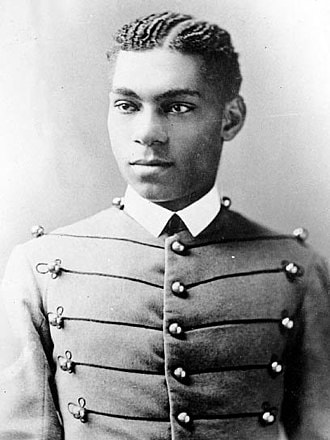
After his commissioning, he was assigned to one of the all-black regiments in the U.S. Army, which were historically led by white officers. Assigned to 'A' Troop under the command of Captain Nicholas M. Nolan, he became the first nonwhite officer to lead buffalo soldiers of the 10th Cavalry. Flipper served with competency and distinction during the Apache Wars and the Victorio Campaign, but was haunted by racially-motivated rumors alleging improprieties. Eventually, he was court-martialed and dismissed from the U.S. Army.
Flipper had been the quartermaster of his regiment and was in charge of paying the soldier's wages and for mess supplies and other transactions. When a Colonel William Rufus Shafter, an officer who disapproved of blacks being given officer rank, took command of the regiment, he immediately relived Flipper of this duty. Several days later, Shafter asked Flipper to take charge of the regimental safe until a new quartermaster was appointed. Flipper soon discovered that during the time the safe had been under Shafter's control $2,000 in regimental funds had gone missing. Flipper recognized that he was being set-up to make it appear that he had stolen or misappropriated the funds, but was essentially powerless to do anything.
Following Flipper's arrest, many soldiers and community members raised money to cover he discrepancy. Although Shafter accepted the funds, he proceeded with the court martial. At the trial, Shafter introduced evidence that Flipper had developed a platonic relationship with the daughter of previous acting commander of the regiment in contravention of regulations of black soldiers "associating" with white women
After losing his commission in the Army, Flipper worked throughout Mexico and Latin America and later as an assistant to the Secretary of the Interior. He retired to Atlanta in 1931 and died of natural causes in 1940.
In 1994, his descendants applied to the U.S. military for a review of Flipper's court-martial and dismissal. A review found the conviction and punishment were "unduly harsh and unjust" and recommended Flipper's dismissal be changed to a good conduct discharge. Shortly afterwards, an application for pardon was filed with the Secretary of the Army, which was forwarded to the Department of Justice. President Bill Clinton posthumously pardoned Lieutenant Henry O. Flipper on February 19, 1999, 118 years after his conviction.
 RSS Feed
RSS Feed